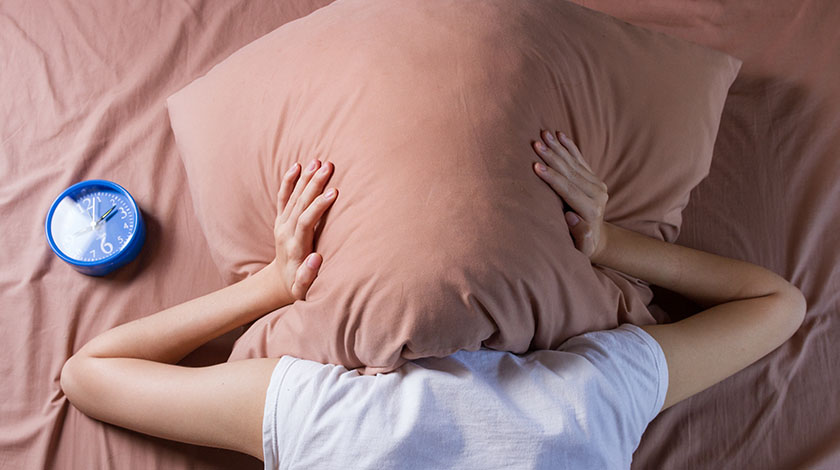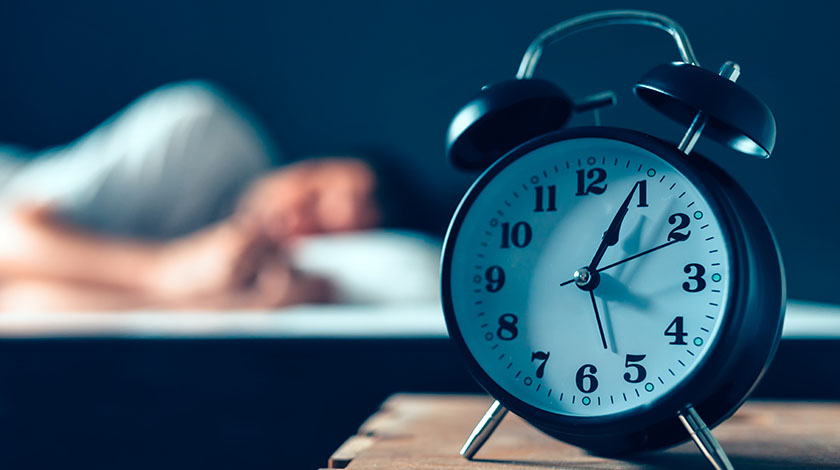We all suffer from insomnia from time to time. In fact, at least a third of adults have suffered from insomnia at some point in their life.1 There are few worse feelings in the world than laying wide awake in bed until your alarm clock goes off. Fortunately, insomnia is usually preventable and treatable. By gaining a deeper understanding of the causes, you can equip yourself to get that good night’s rest you deserve!
Understanding insomnia

Episodic insomnia (i.e. insomnia over a short period of time) is usually caused by stress or illness. Medication is another common cause1 — for instance, several decongestant medicines used to treat stuffy noses are known to interfere with sleep.
Besides environmental factors, gender, age and mental health can also affect your sleep. Women, individuals above 40 and those with a history of depression or anxiety disorders are more likely to suffer from insomnia. It’s important to recognize that insomnia manifests in many different forms.1
- Sleep latency insomnia. You suffer from sleep latency insomnia if you frequently take more than 30 minutes to fall asleep.
- Sleep maintenance insomnia. Also known as sleep interruption insomnia. Sufferers of this condition wake up frequently during the night and find it difficult to fall back asleep.
- Terminal insomnia. Sufferers wake up several hours earlier than recommended and cannot go back to sleep.
Improving sleep quality

We all suffer from insomnia from time to time. In fact, at least a third of adults have suffered from insomnia at some point in their life.1 There are few worse feelings in the world than laying wide awake in bed until your alarm clock goes off. Fortunately, insomnia is usually preventable and treatable. By gaining a deeper understanding of the causes, you can equip yourself to get that good night’s rest you deserve!
Understanding insomnia
Episodic insomnia (i.e. insomnia over a short period of time) is usually caused by stress or illness. Medication is another common cause1 — for instance, several decongestant medicines used to treat stuffy noses are known to interfere with sleep.
Besides environmental factors, gender, age and mental health can also affect your sleep. Women, individuals above 40 and those with a history of depression or anxiety disorders are more likely to suffer from insomnia. It’s important to recognize that insomnia manifests in many different forms.1
- Sleep latency insomnia. You suffer from sleep latency insomnia if you frequently take more than 30 minutes to fall asleep.
- Sleep maintenance insomnia. Also known as sleep interruption insomnia. Sufferers of this condition wake up frequently during the night and find it difficult to fall back asleep.
- Terminal insomnia. Sufferers wake up several hours earlier than recommended and cannot go back to sleep.
Improving sleep quality
No matter which form of insomnia you are suffering from, preparing for a good night’s sleep starts way before you climb under the blanket and switch off the lights. Here are some tips for sprucing up your bedtime routine.
- Environment matters. If your bedroom is too bright, too noisy, too warm or too cold, you may find it harder to get to sleep. For the best-quality sleep, follow these guidelines.
- The temperature of your bedroom should be around 24 to 25 degrees.2
- Try to keep your bedroom dimly-lit before bed. A bedside lamp emitting orange light is ideal. White or blue light may stimulate brain activity and make you feel more awake.2
- If noises from outside keep you up at night, consider investing in thicker curtains or wearing earplugs.
- A better bed means better sleep. The springs of your mattress wear out over time, and a saggy mattress means a backache and lower-quality sleep. Invest in a new mattress if you have to.
- Wind down. In the 30 minutes before bed, try to do something relaxing such as reading, listening to slow music or chatting with your family members. Avoid mobile phone or computer use as the blue light from the screen excites your brain and increases alertness.2
- Avoid nicotine, caffeine and alcohol. All three substances can impair sleep quality. In particular, the average smoker sleeps 30 minutes less than a non-smoker due to the powerful stimulant quality of nicotine.3
When we sleep, our body repairs itself physically, mentally and emotionally from the trauma of the long day. Don’t be robbed of sleep — take steps to prevent insomnia today!
Sources
- Insomnia. NHS Choices. Visited 27 September 2013.
- Sleep Advice. The Sleep Council. Visited 27 September 2013.
- Sleeping Well. The Royal College of Psychiatrists. Visited 27 September 2013.

